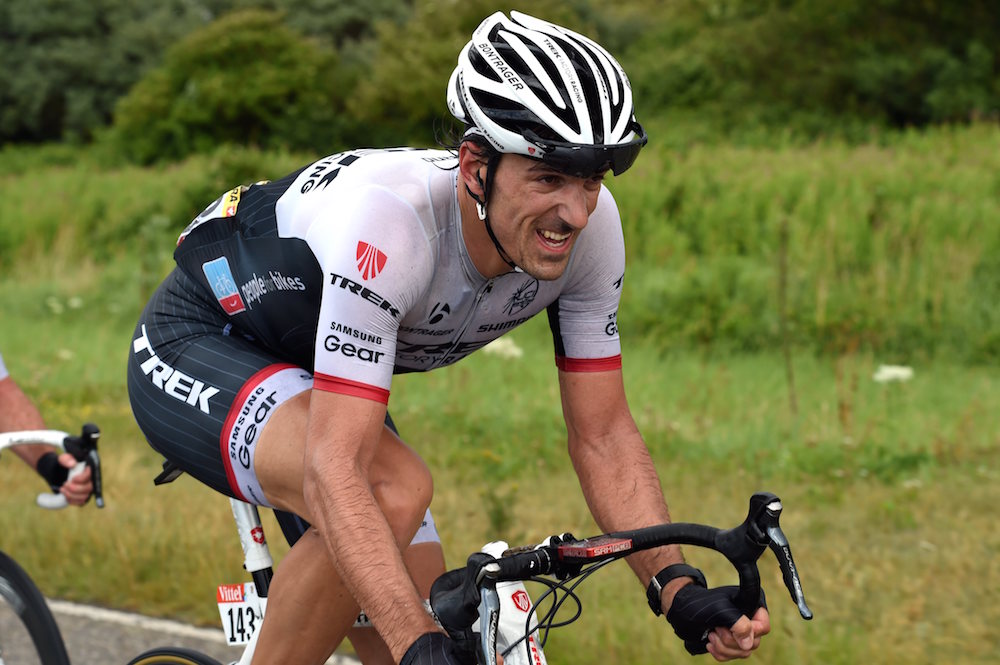Fabian Cancellara will shun disc brakes in his final season
Trek-Segafredo's Fabian Cancellara will remain on caliper brakes for the 2016 season, not wanting to change to disc brakes in his final year


Fabian Cancellara on stage two of the 2015 Tour de France (Watson)
Classics star Fabian Cancellara will not use disc brakes despite testing them in training this winter because he does not want to make the switch in 2016, his final season.
Trek Factory Racing tested the brakes in the Vuelta a España this August/September and Cancellara is using road and cyclo-cross bicycles with them at home in Bern, Switzerland.
However, Cancellara explained on Wednesday when Trek welcomed new co-sponsor Segafredo that he will use calliper brakes for his last year.
"I don't want to change things in my final year. I'm still on Shimano's mechanical group, the only one in our team to use it instead of electronic. It's my choice," Cancellara said.
"I don't think they make me go faster, or slower. It's a technical and personal decision."
With its leader off them, the rest of the classics team could also be on calliper-equipped bikes too to avoid any problems with a bike change or wheel change during one of the big races from Milan-San Remo to Paris-Roubaix. He added, "We're not expecting to use them in the classics."
Cycling Weekly's disc brake bike of the year
The latest race content, interviews, features, reviews and expert buying guides, direct to your inbox!
With Belgian Tom Boonen, the 34-year-old is one of the two kings of the classics. He won the Tour of Flanders and Paris-Roubaix three times each and Milan-San Remo once.
Cancellara's decision will not stop the rest of Trek-Segafredo riding disc brake bikes in other races. The UCI gave the green light for top teams to use them in all races in 2016.
"This is the future, but we have to be careful about rushing into it," the team's technical director, Matt Shriver told Cycling Weekly about disc brakes.
"It's unlikely, though, for Fabian because there is still a lot of testing and [Roubaix is] such a chaotic race, so you are adding more issues to an already busy race that pushes everyone's resources. It'd be better if everyone is on them in that race."
Shriver added that some rivals will probably use them in the big classics and that if it is wet, disc brakes will be advantageous.
Critics argue that discs are dangerous in a crash and create big braking difference in the group. However, insiders say that differences already exist, and perhaps even a greater ones, between the braking power of Shimano, SRAM and Campagnolo callipers.
Gregor Brown is an experienced cycling journalist, based in Florence, Italy. He has covered races all over the world for over a decade - following the Giro, Tour de France, and every major race since 2006. His love of cycling began with freestyle and BMX, before the 1998 Tour de France led him to a deep appreciation of the road racing season.
